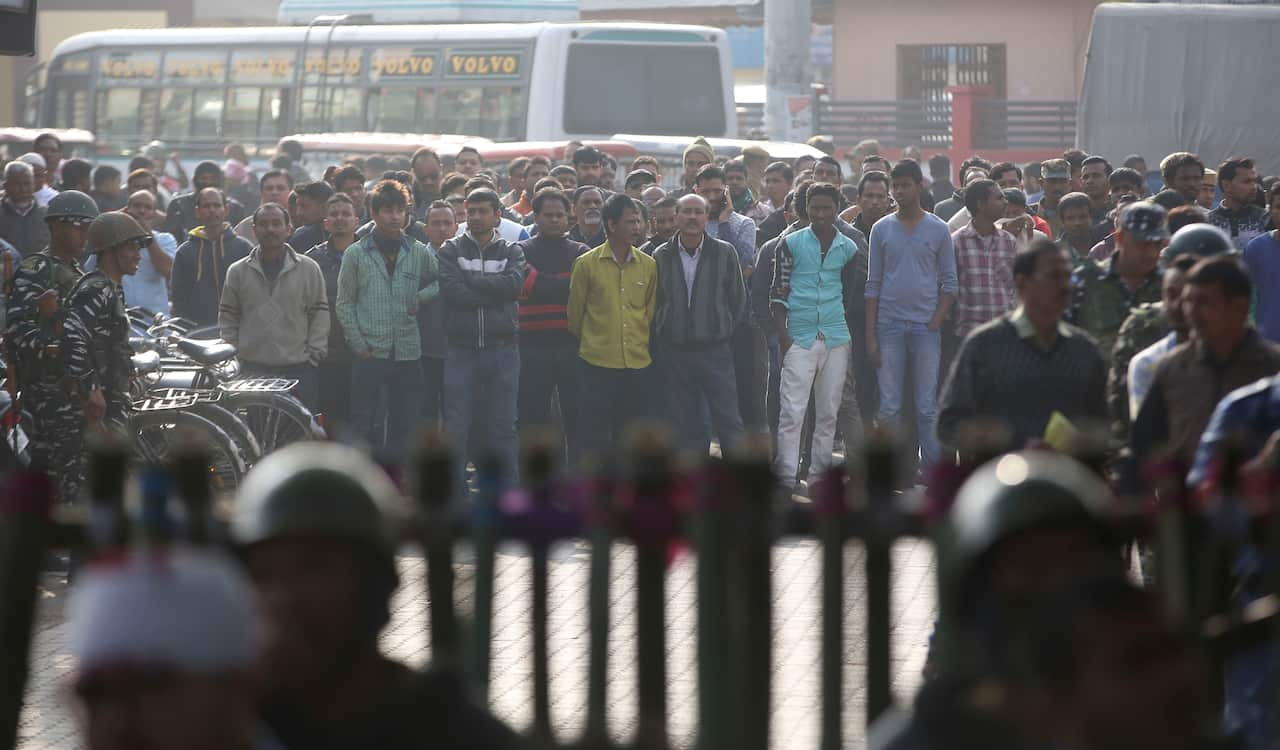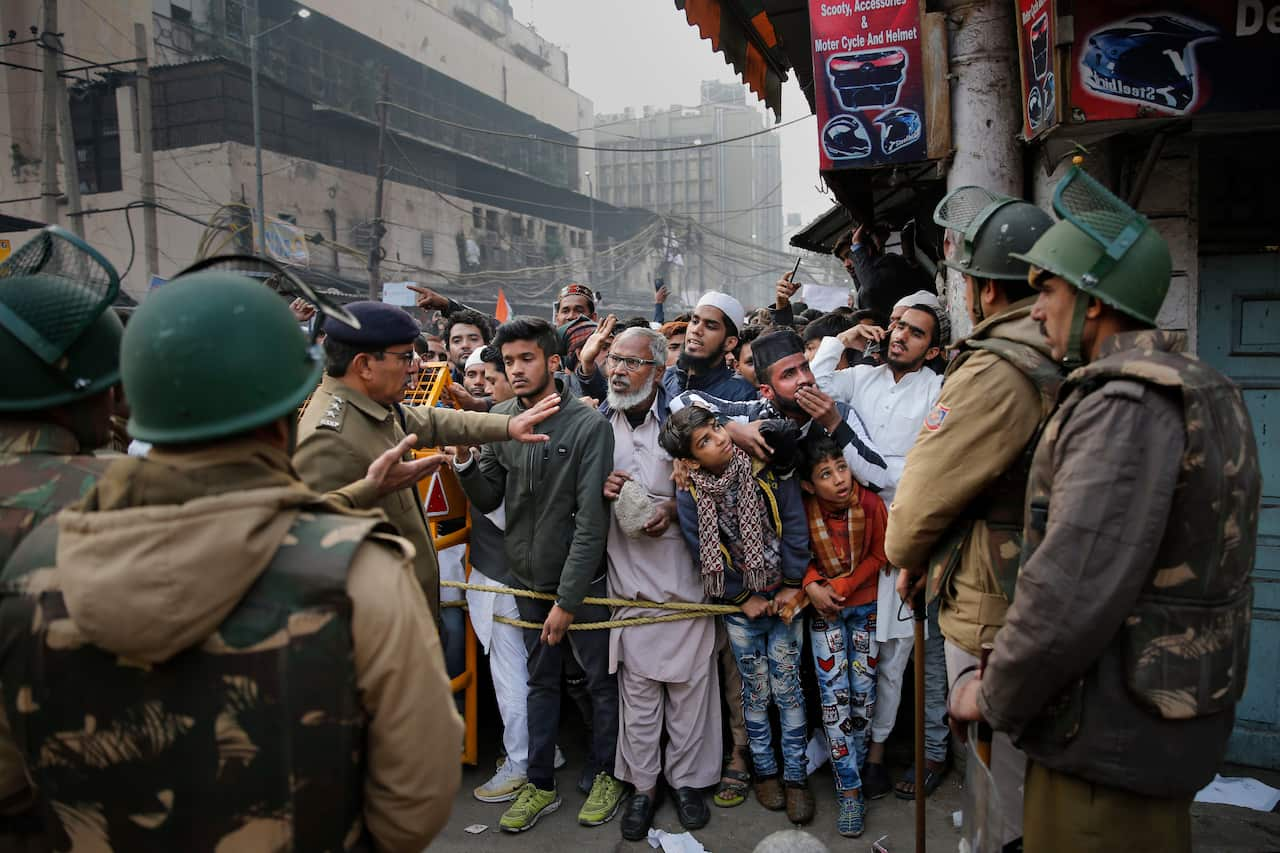Police have banned public gatherings in parts of the Indian capital and other cities for a third day and cut internet services to try to stop growing protests against a new citizenship law that has left 14 people dead and more than 4,000 detained.
Thousands of protesters stood inside and on the steps of New Delhi's Jama Masijd, one of India's largest mosques, after Friday afternoon prayers.
They waved Indian flags and shouted slogans against the government and the citizenship law - which critics contend marginalises Muslims and threatens India's secular democracy in favour of a Hindu state.

Police banned a proposed march from the mosque to an area near India's Parliament and sprayed protesters with water cannon blasts to prevent them from walking toward a monument about 4km away in central Delhi where other protests converged.
The death toll from the protests rose to 14 after six people died amid clashes between protesters and police in the northern state of Uttar Pradesh.
Two of the victims were killed in the town of Meerut, when people fired gunshots from a rooftop, said Dinesh Rai, a senior police official in Uttar Pradesh state.
Elsewhere in the state, protesters set fire to police posts and vehicles and hurled rocks at security forces. Police fired tear gas and used batons to disperse protesters in the towns of Muzzaffarnagar, Saharanpur, Firozabad and Gorakhpur.
Also in New Delhi on Friday, about 10,000 people protested outside Jamia Millia Islamia University, the site of weekend clashes in which students accused police of using excessive force that sent dozens to hospitals.
The new law provides Hindus, Christians and other religious minorities who are in India illegally but can demonstrate religious persecution in Muslim-majority Bangladesh, Pakistan and Afghanistan a way to obtain Indian citizenship.
But it does not apply to Muslims.

Critics have slammed the law as a violation of the country's secular constitution and label it as the latest effort by Prime Minister Narendra Modi's Hindu nationalist-led government to marginalise India's 200 million Muslims.
The protests began last week in the northeastern border state of Assam, the seat of a decades-old movement against migrants, and at predominantly Muslim universities and communities in New Delhi, and now include a broad section of the Indian public nationwide.
The protests come amid an ongoing crackdown in Muslim-majority Kashmir, the restive Himalayan region stripped of its semi-autonomous status and demoted from a state into a federal territory last summer.
They also follow a contentious process in Assam meant to weed out foreigners living in the country illegally. Nearly 2 million people were excluded from an official list of citizens, about half Hindu and half Muslim, and have been asked to prove their citizenship or else be considered foreign.

